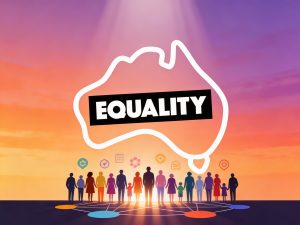Visa cancellation is one of the most serious actions the Australian Government can take against a non-citizen. It can affect long-term residents, temporary visa holders, or even people who have lived in Australia for most of their lives. A cancellation not only removes a person’s lawful right to remain in the country, it can also trigger immigration detention and a permanent ban on re-entry.
As a firm that specialises in immigration law, specifically in matters involving visa cancellations and appeals, Warlows Legal is here to guide you through what happens in these situations. For anyone facing visa cancellation, understanding the legal grounds and your right to appeal is important.
Why Visas Get Cancelled
Visa cancellations in Victoria are governed by the Migration Act 1958 (Cth) and administered by the Department of Home Affairs. The legislation applies nationwide, so the same rules and processes apply whether you are in Melbourne, Sydney, or a regional town.
A visa can be cancelled for a number of reasons, including:
- Not complying with visa conditions
- Providing false or misleading information
- Being considered a risk to the Australian community
- Criminal charges or convictions
- Failing the character test
When a visa is refused or cancelled, the Department will issue a formal decision record explaining the reasons and notifying the person of their rights of review. Critically, strict time limits apply for appeals.
Mandatory vs Discretionary Cancellations
Not all cancellations are the same. Some are automatic, while others depend on the Department’s assessment of a person’s circumstances.
This applies when a person has committed serious offences, and if certain thresholds (like a lengthy prison term) are met, their visa must be cancelled by law. This is automatic and does not require a hearing beforehand. Such cases occur for those that are:
- currently serving a full-time prison sentence, and
- have been sentenced to 12 months or more imprisonment (this includes time already served); or
- have been sentenced to life imprisonment; or
- have been sentenced to death; or
- have been found guilty of a sexual offence involving a child.
In many other cases, the Minister (or a delegate) has the power, but not the obligation, to cancel a visa. This includes situations involving criminal conduct, security concerns, or breaches of visa conditions. The Department will weigh a range of factors, such as length of time in Australia, family impact, risk to the community, and evidence of rehabilitation.
Character Considerations: What Is the Character Test?
A large portion of visa cancellations occur because a person is found not to be of ‘good character’ under s 501(6) of the Migration Act.
You may not pass the character test if:
- You have a substantial criminal record (including being sentenced to 12 months or more in prison);
- You have been involved in serious criminal or international offences (e.g. people trafficking or war crimes);
- has a conviction for sexual offending involving a child;
- Your past or present conduct suggests you pose a risk to the Australian community;
- The Minister reasonably believes you may engage in criminal or disruptive conduct if allowed to remain in Australia;
- You are the subject of an Interpol notice or adverse security assessment;
These decisions are guided by Ministerial Direction No. 110, which sets out the Government’s expectations and the public interest factors that must be considered. Community protection is always treated as a primary consideration, but the Minister must also look at ties to Australia, family responsibilities, and the best interests of any children involved.
Importantly: in most cases, failing the character test does not automatically mean you will be deported, it means your visa may be cancelled, and you have a legal right to appeal.
What Happens After a Cancellation Decision?
The consequences are immediate. A cancelled visa means you are no longer lawfully in Australia. You may:
- Be placed in immigration detention;
- Be issued a removal notice;
- Face restrictions on reapplying for future visas;
However, most visa cancellation decisions can be appealed to the new Administrative Review Tribunal (ART). This is where many people are able to successfully challenge the decision and have their visa reinstated.
If your visa has been cancelled, particularly on character grounds, you will be notified in writing by the Department of Home Affairs. This notification will explain why the visa was cancelled and whether you have the right to appeal. If appeal rights are available, you must act quickly, as strict deadlines apply.
What is the ART and What Does It Do?
The ART is an independent body that reviews government decisions, including those made by the Minister for Immigration or the Department of Home Affairs. Unlike a court, the ART is less formal and focuses on reviewing the merits of a decision, meaning it takes a fresh look at your case.
The ART has the power to:
- Affirm (agree with) the original decision
- Set aside the decision and substitute a new one (for example, to reinstate your visa)
- Remit the decision back to the Department with instructions to reconsider
- Vary the decision
In simple terms, the ART can overturn the cancellation and allow you to stay in Australia.
Timeframes and Fees
The timeframe to appeal depends on the type of visa decision, but it can be as short as 7 to 9 days from the date of notification. A standard migration review is $3,580, with 50% refunded if successful in cases of those with financial hardship. For a Protection visa review, the fee is $2,203, which is only payable if unsuccessful.
Do You Need a Lawyer?
While self-representation is allowed, appealing a visa cancellation is a complex process. Having legal representation can significantly strengthen your case by:
- Preparing detailed legal submissions
- Gathering compelling evidence
- Presenting your arguments effectively at the hearing
- Identifying and addressing any weaknesses in the Department’s original reasoning
Given the consequences of an unsuccessful appeal – detention, deportation, and a long-term re-entry ban – most applicants choose to engage an experienced migration lawyer.
Judicial Review of an Appeal
If the Tribunal affirms the decision and you believe a legal error has occurred, you may be able to seek judicial review in the Federal Circuit and Family Court of Australia. This is not another appeal, but a legal challenge based on whether the ART made a jurisdictional error.
So What Now?
Having your visa cancelled is serious, but it doesn’t always mean you have to leave Australia. There are legal options available, and many people are able to overturn the decision through the ART. What matters most is acting quickly, understanding why the cancellation happened, and presenting a strong case that shows your ties to Australia and why you should be allowed to stay. With the right support, a visa cancellation can be challenged, and in many cases, successfully reversed.
As a firm that provides expert advice and representation in matters involving visa cancellations and appeals, including challenges to visa refusals and cancellations before the Administrative Review Tribunal (ART) and Federal Courts, we are here to help you out.
Please get in contact with Warlows Legal using the contact information below, and we will endeavour to be in touch with you as soon as possible.
Note: As of October 2024, the Administrative Review Tribunal (ART) has replaced the former Administrative Appeals Tribunal (AAT). All existing migration cases previously before the AAT have now transitioned to the ART.






